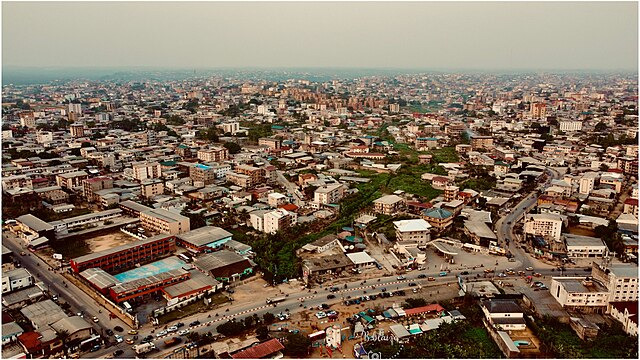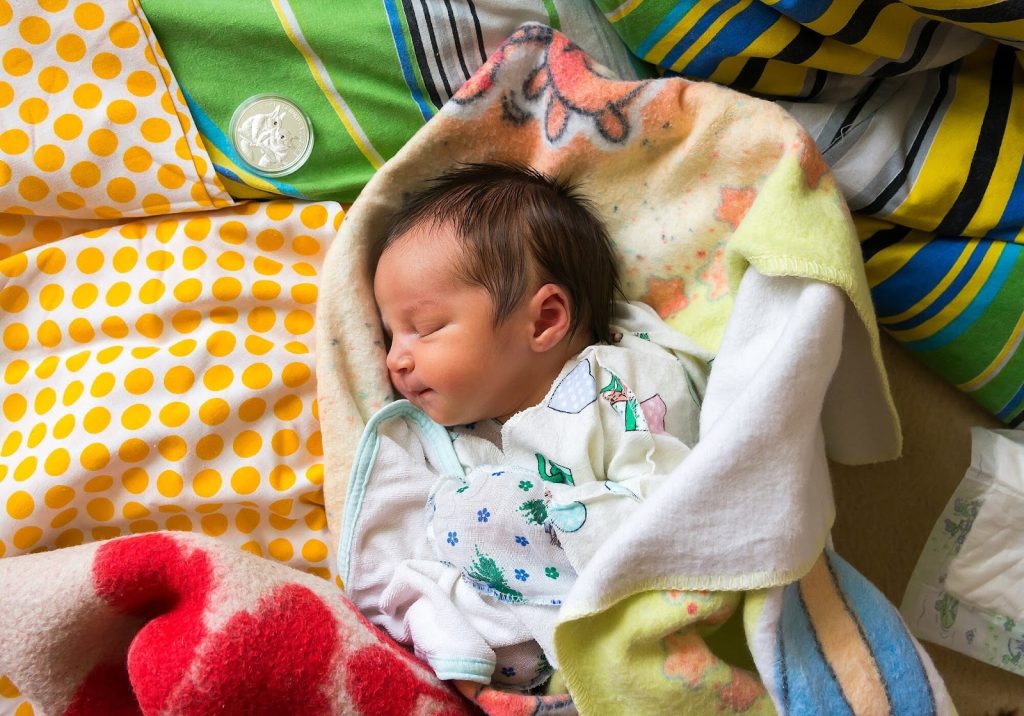The Editor’s Note
Welcome back to this week’s edition of Outside OX1! The term is truly underway as we have hit November, and if you’re like me, you’re sitting wondering where all the time has gone. As preparations for Bonfire Night begin, why not take a break from your essays, deadlines, labs and tutorials and catch up on the biggest stories you may have missed this week?
Sol White explores Hurricane Melissa, a Category 5 tropical hurricane, which has devastated Jamaica and parts of the Caribbean, leaving widespread destruction and prompting a major humanitarian response. It is the most powerful hurricane ever recorded to strike Jamaica, bringing catastrophic winds and torrential rain that left southwestern regions described as “apocalyptic.” At least 50 people have been confirmed dead across the region, 28 in Jamaica and 31 in Haiti, while another 20 remain missing after landslides and flooding.
Thomas Yates uncovers that Cameroon’s long-standing president, Paul Biya, aged 92, has won re-election with 53.66% of the vote, extending a rule that began in 1982. His main rival, Issa Tchiroma Bakary, secured 35.19%, but immediately rejected the results, alleging widespread electoral fraud and declaring himself the rightful winner. The election outcome has triggered nationwide protests, particularly among the nation’s youthful population, Cameroon’s median age is only 18, who have never known another leader.
Saba Ahmadzadeh Noughani details how Poland is facing its most severe demographic decline since World War II. The population has dropped below 37.5 million and is projected to fall to 26.7 million by 2060, with the median age expected to surpass 50. This decline stems from persistently low birth rates and continued emigration, both of which are accelerating the country’s ageing population and straining its economy, labour market, and public services.
Hurricane Melissa Ravages Jamaica
Sol White

Tropical Hurricane Melissa has left a trail of devastation across the Caribbean and prompted a large-scale government response, as affected nations and foreign donors mobilise to address the humanitarian and infrastructural fallout.
Melissa made landfall in Jamaica as a Category 5 storm on 28 October, marking the most powerful hurricane ever to strike the island. The storm battered the region with destructive winds and torrential rain, leaving areas of southwest Jamaica in “apocalyptic” condition according to relief officials.Fifty lives have been confirmed lost across the Caribbean, but it is expected that this number will go up as more bodies are found. In Haiti, heavy rainfall and landslides triggered by Melissa’s outer bands killed thirty-one people and have left twenty missing.
Infrastructure across Jamaica has been thoroughly damaged. In the parish of St Elizabeth, local authorities have reported demolished municipal buildings, ruined courts, battered roads and works departments. Additionally, nearly 462,000 people were left cut off from electricity during the immediate aftermath of the hurricane.
In neighbouring Cuba, Melissa passed as a Category 3 storm and caused widespread damage, though few casualties were reported.
The Jamaican government declared a disaster area on 29 October and activated emergency services, mobilising military reserves and relief flights to reach isolated communities. Meanwhile the United Kingdom’s government has announced a humanitarian aid package of £5 million to facilitate emergency shelter kits, water filters and blankets in the islands. A Royal Navy vessel was placed on standby and a Foreign Office rapid-deployment team was dispatched to provide consular support to British nationals in the region, with up to 8,000 Brits believed to be on the island.
Some tourists stranded in Jamaica criticised the lack of timely travel warnings from the government, travel agents and airlines ahead of Melissa’s intensification. One traveller said: “The advice should have been last week […] because a lot of the travel companies use the FCDO guidance”. In response, the UK government stated that the safety and security of British nationals was its top priority and urged Britons on the island to follow local guidance and register for consular updates.
Relief agencies warn that the immediate emergency is evolving into a long-term recovery challenge. The estimated economic losses are placed at between $48 billion and $52 billion USD for the western Caribbean region. This, just another in a long line of natural disasters for the region. Haiti, the poorest country in the Western Hemisphere, feels like it is in a constant state of rebuilding, with at least ten natural disasters in the past 5 years.
Meanwhile, climate scientists say storms like Melissa are becoming more intense as warming ocean waters fuel rapid intensification and a higher frequency of hurricanes.
Jamaican Prime Minister Andrew Holness pledged full commitment to rebuilding, telling the public: “The damage is great, but we are going to devote all our energy to mount a strong recovery.”
As Melissa moves northwards across the Atlantic, relief operations continue to expand. The focus is on restoring infrastructure, clearing debris, restoring power, and providing shelter for the displaced. Unfortunately, the next few weeks will be marked by a slowly rising death toll as more bodies are uncovered. The coming weeks will be critical in determining how swiftly affected communities can begin to rebuild.
Cameroon’s 92-year-old Paul Biya Voted In for the Sixth Time
Thomas Yates

The results of Cameroon’s presidential election were announced on Monday, with nonagenarian incumbent leader Paul Biya winning over half the votes. Biya’s premiership began in 1982, meaning that many in Cameroon, where the median age is just 18, cannot remember a time before he came into power. Protests against the results have now erupted across Cameroon, and Biya’s major political opponent has been forced to flee for safety from government forces.
Biya, who was born in 1933, secured 53.66% of the vote according to the nation’s Constitutional Council. His closest contestant, Issa Tchiroma Bakary, won 35.19% of votes, while no other candidate broke above 4% of the voteshare. These results have been brought into question, not least by Tchiroma. Convinced that he had secured victory, Tchiroma declared himself the winner just two days after the 12 October election – fifteen days before the official announcement of the outcome.
Tchiroma and his supporters, though, were always expecting an uphill battle to make their voices heard. He has previously said that he would “never accept votes being stolen by anyone” and would only take defeat if the results “come from the ballot box, not ballot stuffing.” Despite a ban on public gatherings, protests in anticipation of a ‘stolen’ election broke out in Douala, the largest city in Cameroon, on 26 October, before the results were even confirmed. Riots like this one have been put down through violence by armed police officers, with gunshots and tear gas being used, leading to at least four deaths in Douala, and further casualties and economic standstill across Northern Cameroon.
The Office of the High Commissioner for Human Rights has expressed its shock at the tensions in Cameroon, calling on 30 October for “the security forces to refrain from use of lethal force, and on the protesters to demonstrate peacefully.” Tchiroma claims to have been threatened directly. He posted on social media as the results were released that “right now at my home in Garoua, they are firing on civilians camped outside. The assault has begun.” On 31 October, however, Tchiroma wrote that some soldiers had brought him to a safe location – which suggests that there are split loyalties in the Cameroonian army.
Tchiroma, who is 76 himself, only became Biya’s opponent relatively recently. He has held posts such as communications minister and government spokesperson, but resigned from Biya’s government in June in order to run against him – though incidentally he did spend six years in prison from 1984 for allegedly plotting against Biya, a crime for which he was never actually charged.
As well as Tchiroma’s limited time campaigning as an opponent to Biya, Tchiroma may also have struggled to win votes because of the actions of armed separatists in Cameroon’s Southwest and Northwest regions. These Anglophone parts of the country have felt excluded from Cameroon’s Francophone government, and English-speakers were encouraged to boycott the vote altogether. Those who did vote in these regions were therefore overwhelmingly in favour of Biya.
Whether Biya’s victory was down to regional political differences, and genuine support, or due to electoral fraud, is a debate which is unfortunately being contested through violence in Cameroon.
Poland’s Empty Cradle: A Looming National Crisis
Saba Ahmadzadeh Noughani

For the first time since World War II, Poland is experiencing a severe population decline. Last year, Poland’s population fell below 37.5 million, with projections estimating that the population will continue to shrink. By 2060, the population could drop to 26.7 million, with the median age likely exceeding fifty in the same year. This is the second year in a row that population decline has reached record breaking numbers. Both lowering birth rates and rising emigration have contributed to this, subsequently leading to a rapidly aging population. This has already begun to have critical consequences for the nation, from a shrinking workforce to straining public services.
Poland’s fertility rate is one of the lowest in the world. At 1.1 children per woman, it is currently far below the 2.1 replacement rate that is required to sustain a population. Furthermore, for over a decade, death rates have exceeded birth rates. This has become an even more pressing concern when in 2024, after two hundred years, births in Poland reached a new post-war low. Changing societal norms have been cited as a primary driver for young Polish people consciously choosing to delay marriage and parenthood, and having fewer children.
Concentrated on careers while managing rising costs of living, the average age of a woman bearing her first child has risen from 22.7 to 29.1 in just over thirty years. The lack of affordable housing has led many young couples to be hesitant to have children, especially at a younger age. Demographers have also highlighted that restrictive abortion laws are also deterring women from choosing to get pregnant.
Additionally, since joining the EU in 2004, many young and educated Poles have emigrated to other EU countries in search of greater employment opportunities. A large portion of the workforce permanently relocating abroad,leaving the older generation in Poland,has increased the median age of the population, resulting in an aging population and a shrinking workforce. In 2025, the median age is 42.5 and a significant portion of the population are over the retirement age, which is currently sixty for women and sixty-five for men. The resultant labour shortage has strained the labour market, economy and public social services, notably the pension system and healthcare sectors.
While a large number of Ukrainian and Belarusian economic migrants have come to Poland and aided in filling labour shortages, anti-immigrant discourse thrives amongst the public. Earlier this year, economists stated that the intensifying demographic challenges outweigh the positive effects of immigration. Anti-immigration discourse has especially intensified after Karol Nawrocki was elected as President of Poland. Nawrocki is a nationalist backed by the conservative Law and Justice (PiS) party. He has accused refugees of taking advantage of Polish social services like healthcare and schooling, particularly directing his indictments to Ukrainian refugees. His political slogan “Poles first” has fueled much of the anti-immigrant rhetoric.
In an attempt to mitigate these challenges, the government is developing a new migration strategy for 2025-2030. This is aiming to encourage foreign workers to come to Poland while simultaneously responding to the public’s indignation regarding the heightened immigration. Additionally, to boost birth rates, the government introduced the ‘500+’ child benefit, now known as the ‘800+’ child benefit program. The ‘800+’ provides a monthly allowance of 800 PLN per child, regardless of family income. With this, the government has reinstated public funding for in vitro fertilisation (IVF) treatment.
While these measures are yet to have a significant effect reversing the population decline, people are hopeful that they may reap future success.

